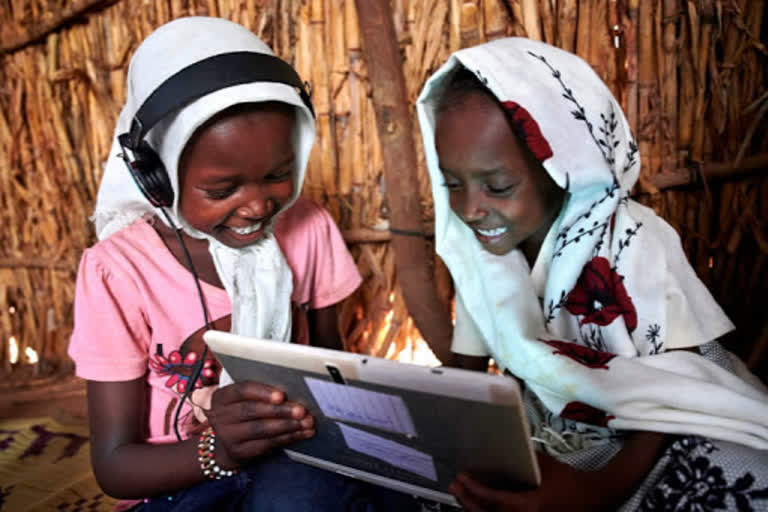New York: Stating that nearly 1.2 billion children are out of school owing to the COVID-19 pandemic, the United Nations Children's Fund (UNICEF) warned that inequalities in access to tools and technology could deepen the global learning crisis.
"Access to the technology and materials needed to continue learning while schools are closed is desperately unequal," said UNICEF Chief of Education Robert Jenkins.
Similarly, Jenkins added that children with limited learning support at home almost had no means to support their education.
"Providing a range of learning tools and accelerating access to the internet for every school and every child is critical," he said.
Stating that a learning crisis already existed before the COVID-19 outbreak, Jenkins said that the world was now staring at an even more divisive and deepening education crisis.
According to the UNICEF data, in 71 countries worldwide, less than half the population has internet access. Ironically, nearly three-quarters of governments in 127 reporting countries, are using online platforms to deliver education while schools remain closed.
In another alarming stat, three in four governments were using television as the main channel to deliver remote learning despite glaring disparities in ownership.
Data also revealed that in 40 of the 88 countries, children living in urban areas are twice as likely to have a TV than their rural counterparts.
Besides, the issue of access to electricity is also a major hurdle. In the 28 countries with data, only 65 per cent of households from the poorest quarters have electricity, compared to 98 per cent of households from the wealthiest quarters.
Read: UNICEF teams up with Microsoft for remote learning platform



